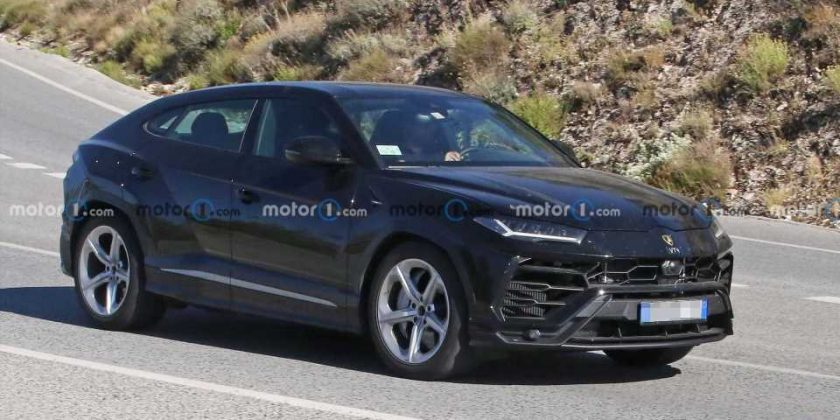Even though Lamborghini, like all supercar and sports car manufacturers, will try to hold on to the internal combustion engine for as long as possible, it too will be forced to eventually only sell electric vehicles. The first of these has now been reportedly confirmed for the year 2028 and, unsurprisingly, it’s going to be a taller crossover/SUV type vehicle with increased ground clearance.
It apparently won’t be a replacement for the current Urus, as that model will also be replaced by a full EV not long after, so before the end of the decade. Autocar quotes Lamborghini CEO Stephan Winkelmann as saying
The first step is to launch two fully electric cars by 2030. As a result of that, we have some time to decide whether we can stay with the internal combustion engines or if we have to go fully electric.
The pressure to decide the final details isn’t here yet. If the European Parliament decides on a ban, that will influence us, of course.
Gallery: Lamborghini Urus PHEV Spy Photos
The manufacturer will most likely want to keep an internal combustion engine in its Huracan and Aventador replacement models, which will most likely be plug-in hybrids for their next generation. They may even be PHEVs for two more generations if, of course, legislation doesn’t outlaw burning gasoline after 2030.
Winkelmann notes that
There are so many markets with so many different plans that we must take all the time we have to consider the best route forward. It’s not simple.
Of course, we must make decisions well ahead of any deadlines, and it might be that we can’t wait for the regulations to commit, but this strategy with the two fully electric cars is a decision that gives us more time to consider.
The first Lambo EV will most likely sit on a variation of the Artemis platform currently bein developed by Audi, which will also be used to underpin future Bentley EVs too, including an electric replacement for the range-topping Mulsanne. Until then, we will get to see the entire lineup (Urus, Aventador and Huracan) become plug-in hybrids (by 2024).
- Share on Facebook
- Share on Twitter
- Share on LinkedIn
- Share on Flipboard
- Share on Reddit
- Share on WhatsApp
- Send to email
Source: Read Full Article


